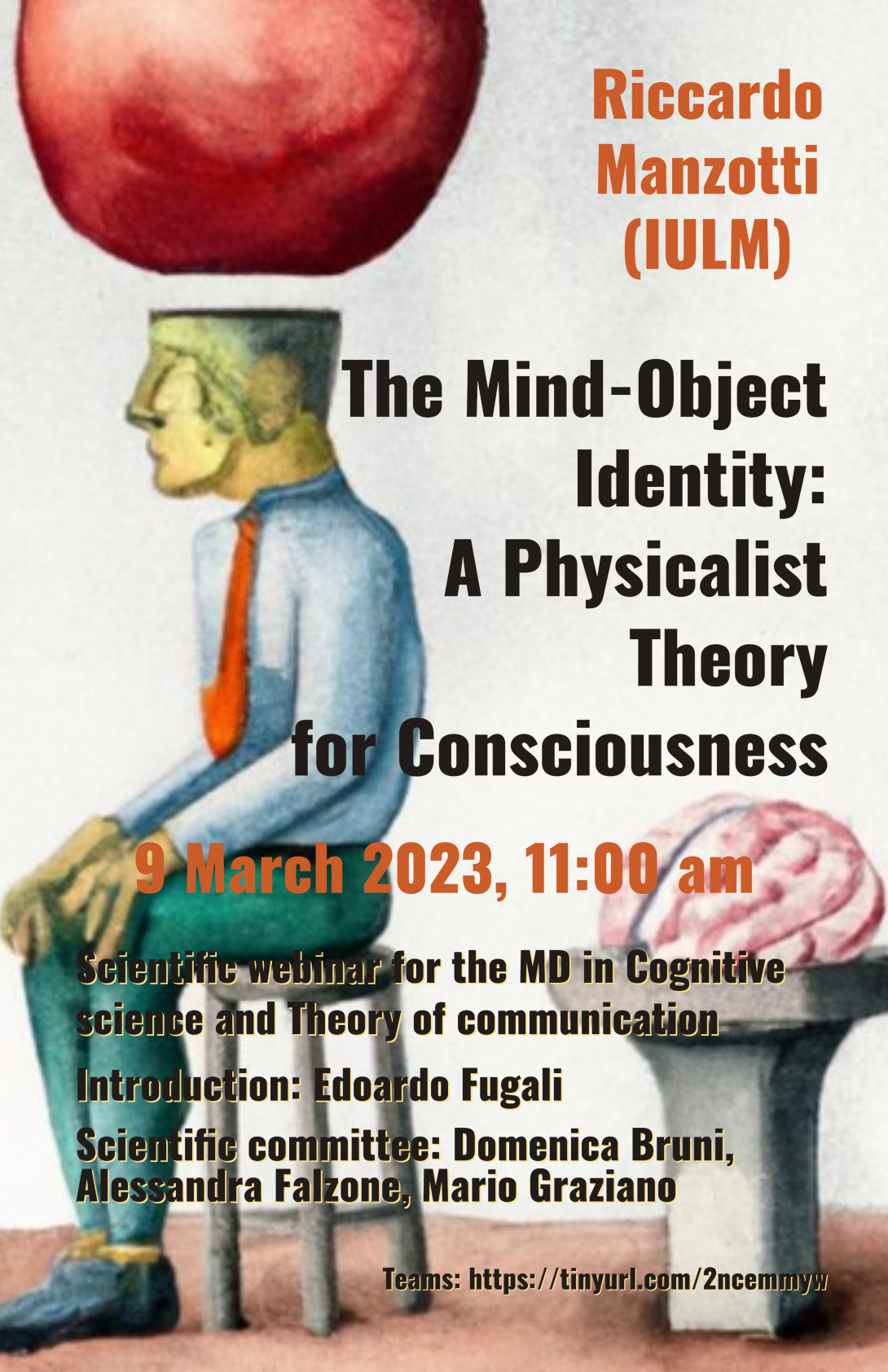
The students are advised that on 10th March at 11:00 am (Italian hour) a webinar of prof. Riccardo Manzotti (IULM - Milan) on "The Mind-Object Identity: A Physicalist Theory for Consciousness" will take place on Teams. Here the link: https://tinyurl.com/2ncemmyw. I remind that the attendance of the webinar is mandatory in order for the students enrolled in the MD in Cognitive science and Theory of communication to get one credit (CFU/ECTS). The attending students have also to write a report of 10.000 characters plus bibliography. Here below you find the flyer of the event.
ABSTRACT: Consciousness poses a difficult problem for both science and philosophy, a hard one indeed!, as it implies that something is present to something else without the former being the latter. However, it might turn out that consciousness is only a pseudo-problem that has appeared unsolvable only because of flawed assumptions. The two main options for resolving this problem are intentionality and identity. Intentionality cannot be reconciled with physicalism and is therefore unsuitable. Identity was briefly considered in mind-brain identity theories in the 1950s, but empirical inconsistencies led to its rejection. However, a new approach to identity is possible by considering the physical objects that exist relative to our bodies rather than neural processes. Here, I put forward the Mind-Object Identity hypothesis (MOI) and show that it can explain perception, memory, illusions, and hallucinations under a unified principle. I will briefly outline the three core tenets of MOI which are the concept of relative existence, the Eleatic principle, and a notion of gerrymandered spatiotemporal existence. The good news is that they are all already bundled with physics. Eventually, if possible, I will briefly compare MOI with other approaches, such as OOO, IIT, embodied cognition, and enactivism, denouncing their anthropocentrism attitude and dualistic structure.